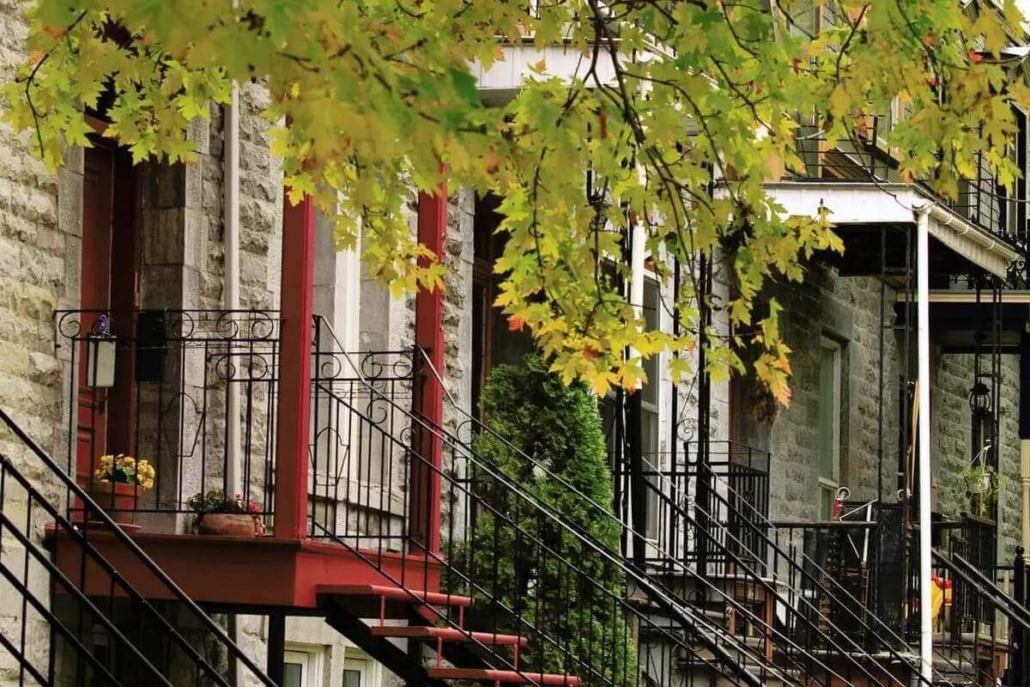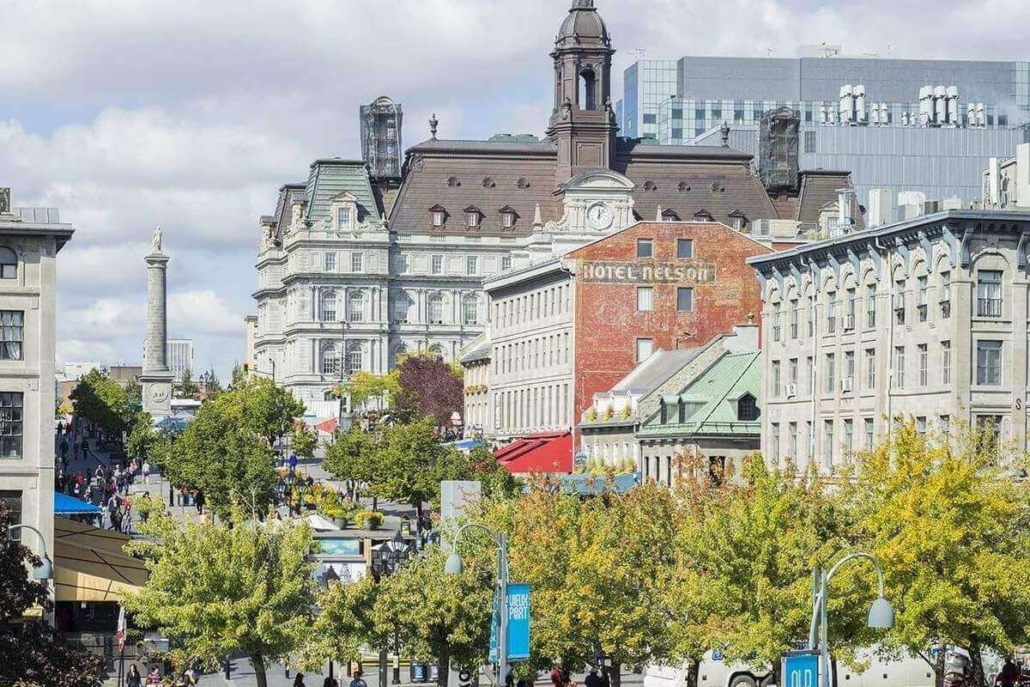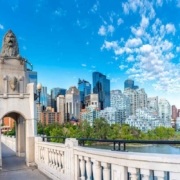Exploring Montreal Short-Term Rental Rules: Guide for Hosts
Montreal, known for its vibrant culture and scenic beauty, has become a hub for short-term tourist rentals. If you’re considering renting out your property for periods less than 31 days, whether it’s a cozy corner of your primary residence or a charming secondary home listed on platforms like Airbnb or Facebook, it’s essential to understand the regulations that govern this practice.
- The Benefits of Investing in Airbnb in Montreal
- Launching an Airbnb Business in Montreal: A Primer
- 5 Key Factors for Airbnb Profitability in Montreal: Essential Insights
- Top 5 Most Important Dates When Managing Airbnb in Montreal
- Host’s Advice: a Local Guide to Montreal for Your Guests
What Defines a Short-Term Tourist Rental?
A short-term tourist rental is essentially the practice of renting out either a part or the whole of a residential property to tourists for durations not exceeding 31 days. This includes both your main residence and any additional properties you might own.
Regulatory Requirements for Short-Term Rentals
The Montreal authorities have put in place specific regulations for anyone looking to enter the short-term tourist rental market:
Classification Certificate: To legally rent your space to tourists, you must obtain a classification certificate from the Corporation de l’Industrie Touristique du Québec (CITQ).
Advertising Your Rental: As of May 1, 2020, it’s mandatory to display your establishment number on all advertisements for your rental property, both online and offline.
Application Process for the Attestation: For the CITQ attestation, you need to provide a notice of compliance, which is a document confirming your adherence to the tourist accommodation establishment standards. This notice can be obtained from the CITQ website.

Location-Specific Guidelines
Certain boroughs in Montreal allow tourist rentals only in specific areas. It’s crucial to:
Check for Authorized Areas: Before planning to rent out your space, consult with your local permits counter to confirm if your property is in an authorized area for tourist rentals.
Obtain the Necessary Permits: If your property is in an authorized area, you will need a commercial or professional activity occupancy permit, which should be displayed in your rental space. This permit outlines the permitted uses and activities in line with the city’s urban planning by-law.
Compliance with Municipal Regulations
Avoid Unauthorized Installations: Refrain from installing key boxes or similar items for tourists on public property, as these are subject to removal.
Adhere to Health and Sanitation Standards: Ensure your rental complies with all local health and sanitation regulations to provide a safe and enjoyable experience for your guests.

Registering Your Principal Residence for Short-Term Tourist Rentals
In the context of Montreal’s thriving short-term tourist rental market, hosts need to navigate the Montreal Short-Term Rental Rules accurately, especially when it involves their principal residence.
Criteria for Defining a Principal Residence
Your home qualifies as your principal residence for tourist rental purposes if it aligns with the following criteria:
Regular Habitation: The residence is where you live on a consistent basis.
Center of Personal Activities: It serves as the core location for your family and social life, especially when it’s not used for tourist accommodations.
Official Address: The residence’s address matches the one you have provided to various government departments and agencies.
Eligibility for Principal Residence Establishment
Your residence can be considered a principal residence for tourist rentals if it meets the following conditions:
Rental Offering: The space, whether it’s a room, the entire home, or an apartment, is offered to tourists.
Rental Duration: The rental period is 31 days or less, which can be by the night, week, or weekend.
Remuneration: The rental is provided in exchange for payment.
Compliance with Municipal Regulations
Before you submit your registration application, it’s crucial to:
Check Local Requirements: Ensure you understand and meet the specific permits, emergency plans, and other requirements set by your municipality, borough, or regional county municipality.
Adhere to Regulations: Abide by all municipal rules concerning disturbances, safety, and cleanliness.
Documents Required for Registration
Prepare and attach the following documents in scanned format (PDF or JPG) to your application:
Notice of Compliance with Municipal By-laws: This document must be completed and sent to your local urban planning department for signature before applying. Your application won’t be processed without this compliant document from the relevant authority.
Proof of Ownership or Tenancy: Include your property title, municipal tax statement, or rental contract.
Liability Insurance: Provide proof of civil liability insurance coverage of at least $2,000,000 per event.
Photographs of the Property: Attach exterior and interior photos of the establishment, which may be used for digital hosting platforms.
Additional Documentation for Condos or Rentals: If you’re in a condominium or rental, include either provisions from the declaration of co-owners or the rental contract that allows tourist accommodation. If such provisions are not present, obtain authorization from the property owner and/or association of co-owners.
Application Fee
An application fee of $51.50 will be charged upon submission.
Understanding the Significance of This Process
Registering your principal residence for short-term rentals is a crucial step in complying with Montreal’s regulations. This ensures that your rental activities are recognized and approved by the relevant authorities, providing a sense of security and legitimacy both for you as the host and for your potential guests.

Comparative Analysis of Montreal Short-Term Rental Rules in Different Boroughs
Montreal’s diverse boroughs each have their own unique set of rules regarding short-term rentals. This comparative analysis highlights the varying regulations and concludes with insights into the overarching trends and differences.
Diverse Regulations in Different Boroughs
- Ahuntsic-Cartierville: Permits occasional rental of primary residences with compliance notice submission.
- Anjou & Lachine: Prohibits the operation of tourist homes.
- Côte-des-Neiges–Notre-Dame-de-Grâce: Allows rentals in specific commercial zones; owner-occupied dwellings cannot be converted into tourist homes.
- LaSalle: Short-term tourist rental services are not offered.
- Le Plateau-Mont-Royal: Authorizes regular rentals in designated commercial areas; primary residence rentals are allowed borough-wide.
- Le Sud-Ouest: Regulates tourist homes in specific residential buildings; primary residence rentals are broadly permitted.
- L’Île-Bizard–Sainte-Geneviève: Restricts rentals to certain areas; permit consultation is required.
- Mercier–Hochelaga-Maisonneuve, Montréal-Nord, Outremont, Pierrefonds-Roxboro: Prohibits tourist accommodations unless it’s the operator’s primary residence.
- Rivière-des-Prairies–Pointe-aux-Trembles: Short-term tourist rentals are limited to primary residences.
- Rosemont–La Petite-Patrie: Allows renting entire dwellings in the operator’s principal residence; specific zones for bed and breakfasts and apartment hotels.
- Saint-Laurent & Saint-Léonard: Prohibits short-term rental of dwellings, including primary residences.
- Verdun: Permits occasional rentals under certain conditions; bed and breakfasts allowed in specific areas.
- Ville-Marie: Regulates tourist homes in a defined sector; primary residence rentals are widely authorized.
- Villeray–Saint-Michel–Parc-Extension: Classifies tourist homes into categories with specific zoning requirements; primary residence rentals are subject to certification.
Conclusion: A Mosaic of Montreal Short-Term Rental Rules
The city authorities’ approach to the Montreal Short-Term Rental Rules reflects a mosaic of regulations tailored to the unique characteristics of each borough. While some boroughs, like Ahuntsic-Cartierville and Le Plateau-Mont-Royal, offer more flexibility, others like Anjou and Lachine maintain strict prohibitions. This diversity indicates a conscious effort to balance the needs of local communities with the burgeoning short-term rental market. Hosts must carefully navigate these varying rules to ensure compliance and successful operation within their respective boroughs.












